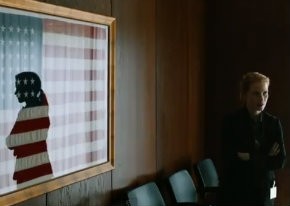Celluloid scripture?

When director Oliver Stone produced JFK, which fantasized that the assassination of President Kennedy resulted from a vast and byzantine conspiracy, he was accused of historical revisionism. Stone took the charges in stride and announced that his next movie would be not about one man but about “the men who shot Liberty Valance.”
Stone’s quip came to mind amid the brouhaha surrounding Zero Dark Thirty, director Kathryn Bigelow’s movie about the hunt for Osama bin Laden. On the positive side, the film has been touted as a “stylistic masterwork” and named by a number of critics as best picture of 2012. Negatively, the movie has been charged with ethical numbness and with mangling history, particularly in graphic scenes of torture that imply—erroneously—that such brutality yielded vital information leading to bin Laden.
While critic Owen Gleiberman praised the film as “written with lightning,” the Guardian’s Glenn Greenwald sputtered that the film is pro-torture propaganda exceeded only by “suffocating jingoism” and an uncritical acceptance of the CIA’s distorted view of reality. Jane Mayer of the New Yorker was shocked over Bigelow’s moral obtuseness in turning a story about torture into a mere police procedural. “If she were making a film about slavery . . . the story would focus on whether the cotton crops were successful.”




